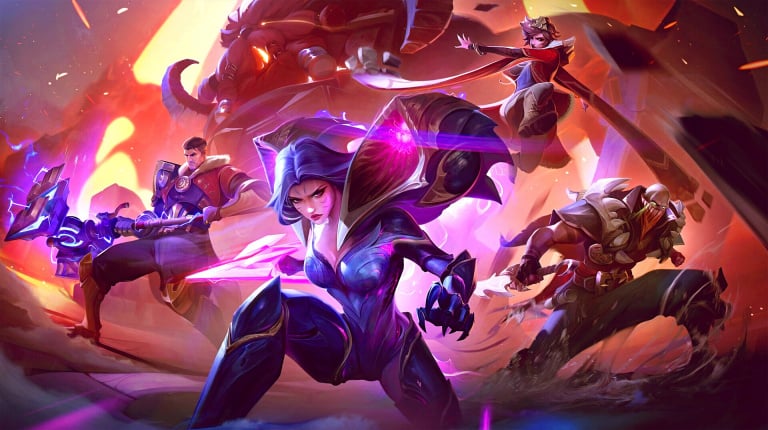In 2019, Riot Games executives announced that MOBA League of Legends would soon no longer be Riot Games’ only game, and that the latter’s universe would expand. First there was Teamfight Tactics, several other games have been released, and many more are in development.
The expanding League of Legends universe
With the exception of Valorant, which is not part of the League of Legends universe, all productions developed or published by Riot Games revolve around the world of Runeterra. There was the mobile version of LoL, League of Legends: Wild Rift, but also the card game Legends of Runeterra, Ruined King: A League of Legends Story, or Ruined King: A League of Legends Story. And, of course, there was the first season of Arcanewhich was a hit on Netflix.
Players are now waiting for the releases of Conv/Rgence, Song of Nunu: A League of Legends Story, but also Project L, the free-to-play fighting game, as well as Project F, le MMORPG League of Legends. These last two games are still a long way from their release, but they have nevertheless been teased from 2019 !
Announcing the games very early, an assumed strategy
We have seen it many times, announcing a game too early can have harmful consequences : increasing pressure on developers, leaks of all kinds, or even players’ expectations which are diminishing or even disappearing over time. So why Riot Games took the risk of announcing these games so early especially when you know the popularity of MOBA, whose competitions fill stadiums?
Greg Street, Executive Producer of Project F, decided to make a thread on Twitter to answer this question, which comes up much more often than you might think! First of all, the person concerned indicates that the idea came from Nicolo Laurent, CEO of Riot Gameswho believed that an official announcement allowed to attract specialized developers (and Riot needed it), but also anticipate leakswhich would not have failed to occur.
One of the most common questions we get is why we announced the League MMO in such a weird way and when we will provide more real information. There was actually a strategy in place here!
— Greg Street (@Ghostcrawler) August 1, 2022
One of the most common questions we receive is why we announced the MMO League in such a strange way and when we will provide more real information. There was actually a strategy in place here!
The other big risk of announcing early is maintaining momentum. It’s hard to keep players engaged and excited for years. They might become impatient (…), or even worse, interpret the normal pace of development as something gone wrong. As usual, you don’t hear about games any time soon.
Games aren’t often announced until they can come with a feature set, a representative image, and maybe even a cutscene. Another commonly stated consideration is “team protection”. You must be able to change the direction of the project, sometimes significantly, in response to internal testing and external market forces.
So why take such a risk? For Riot, in addition to avoiding leaks and recruiting new people, an early announcement made it possible to target fans only of League of Legends, keeping the game away from the general public. It would be easier to keep a low profile with the mainstream media by not accompanying ads with images and features, because that’s what their audience is looking for. By communicating in a disparate way on certain aspects, the studio only reaches directly interested players by the subject, which would make things easier for now:
So we know that when we start releasing concrete information, such as features, the story, or an art direction preview, the “shit” is going to get a lot more real. And it will also make it harder to undo those features, change the story, or update the art part.
We will make big announcements and answer big questions when we have more confidence in the direction we are headed. We don’t need 100% confidence. But we need more than what we have today. One of the challenges of designing an MMO (if not THE challenge) is that all the systems have to work together in complex ways.
Step-by-step communication
Riot Games will therefore not wait until the end of development to talk about the game, because the developers want to be able to change certain things if the returns are not good, and thus “exceed (our) expectations”. For the sequel, Greg Street explains that there won’t be just a few people allowed to talk about the gamewhile specifying that important information cannot be missed:
You’ll hear from engineers, artists, producers, writers, audio and voice actors, the QA department, and the community. Basically, anyone who is interested in doing so. When we make a big game announcement, you won’t miss it. We don’t want to find ourselves in the situation of trying to “save” a game after a hard launch (although games surprisingly often do). We want you to jump into the game and say, “Yeah, it was worth the wait. That’s what I wanted.”

